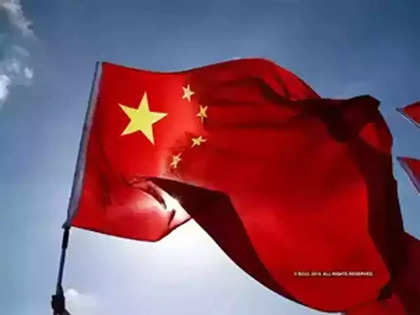
But China is not agreeable. This may compel IMF to consider the rare circumstance of ‘lending into arrears’. This would mean risking going ahead with its bailout programme without the approval of one of the principal creditors. Will that threat of isolation pressure China to cooperate with IMF? Or will other creditors just end up ceding space for China to negotiate a separate deal with Sri Lanka to recover its debts and extend its political control?
Concerns about the second option is the possibility of taking control of physical assets, as it happened with Hambantota Port. There are indications that China is eyeing for better deals on six Sri Lankan projects, some already with Chinese involvement, where it may ask for more stake/control, contracts or both against its debts. These include Hambantota Oil Refinery, Floating LNG plant in Colombo, Outer Circular Highway connecting China built Colombo Port City, takeover of the second Colombo Airport terminal deal for which Japan had extended a loan, the Central Expressway project, and Colombo Light Rail project. At present, these may be speculations. But concerns will be heightened given the manner how China secured a 99-year long lease of Hambantota Port.
There is always a twist in the China playbook, which strengthens the suspicion of a larger political motive behind financial dealings. For instance, it has entered into a $1.5 billion currency swap arrangement with Sri Lanka, which technically swells Colombo’s forex reserve. But the devil is in the details. The terms are supposedly that Sri Lanka can only access this once it has independently built forex reserves to sustain three months of import. This is a Herculean task for a small economy dealing with its worst crisis.
And, then, this currency swap deal can only be honoured in yuans, which essentially means more imports from China. So, the swap arrangement remains on paper and can only become effective once the Sri Lankan economy has recuperated to some extent.
It’s in this light that India will have to weigh its role at the Global Sovereign Debt Roundtable (GSDR), a new initiative where India will be coordinator in its capacity as G20 chair. The first physical meeting is expected later this month. Both IMF and World Bank are relying on the G20 framework to break the impasse with China on the lines of the Debt Service Suspension Initiative for low-income countries right after the pandemic. While Beijing did come on board then, it clearly appears to be drawing a red line when it comes to relatively better-income economies like Sri Lanka, where amounts involved are substantial and geopolitical gains immense.
Nonetheless, the GSDR will look to achieve a consensus on a common understanding on debt, debt restructuring challenges and ways to address them. The discussion is expected to be on five key areas:
- Diagnosing debt vulnerabilities from different regions.
- Identifying bottlenecks in restructuring debt.
- Burden-sharing among creditors in financial restructuring.
- Technical issues, like defining cutoff dates in restructuring debt.
- Legal issues arising from collateralised debt.
Broadly, in the case of China as creditor, cooperation on this set of issues will require greater transparency of its agreements with countries like Sri Lanka. And there lies the rub. All Chinese loan agreements have strict non-disclosure clauses, involving heavy penalties on the borrowing country for any breach. Which is why the issue of collateralised debt and its legal implications, one of the areas to be discussed at the GSDR, alongside exploring possible legislation to limit creditor’s recoveries hold considerable significance for India.
Importantly, India has also leaned closer to the Paris Club, a group of creditor Western countries that mostly takes a common position on issues of debt restructuring. As a non-Paris Club member, India was once clubbed with China during discussions on financing assurances to Suriname, but New Delhi finally changed track and extended the requisite assurances to IMF. And, in Sri Lanka’s case, India gave financing assurances even before the Paris Club came forward.
Clearly, geopolitical and security concerns are at play. What would be significant progress is an assurance against breaching sovereignty of a debt-burdened country by collecting assets the ‘Hambantota way’. However, at present, China is helping out countries like Sri Lanka ‘by inches, not yards’. And that progress, too, is a result of collective pressure of other creditors and international financial institutions.
In many ways, as with trade, the China playbook here too seems to be about weaponising credit instruments to extract maximum strategic and political gain, be it with the country concerned or even in international financial institutions, where it also seeks greater say. Either way, India has its task cut out.
(Catch all the Business News, Breaking News, Budget 2024 Events and Latest News Updates on The Economic Times.)
Subscribe to The Economic Times Prime and read the ET ePaper online.
Read More News on
(Catch all the Business News, Breaking News, Budget 2024 Events and Latest News Updates on The Economic Times.)
Subscribe to The Economic Times Prime and read the ET ePaper online.










 Get Unlimited Access to The Economic Times
Get Unlimited Access to The Economic Times
